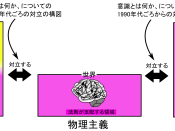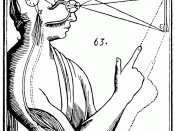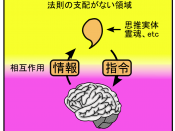Jake Radowski
Do all dualists believe that there is two-way causal interaction between mind and body? Which version of dualism - Cartesian dualism, parallelism, or epiphenomenalism - is the most plausible theory of mind?
The theory of dualism is based on the separating of the body and the mind into two types of substances-material and immaterial or material and mental. Substance dualists hold the belief the mind consists of spiritual stuff not present in the material world, while the body consists of matter. Cartesian dualism or as is more commonly known today, interactionism claims that physical or material events cause immaterial events and that immaterial events cause material. This therefore brings the premise that communication between the mind and body creates the need for a two-way causal interaction between the material and immaterial worlds. Also present, are alternative forms of dualism: parallelism and epiphenomenalism which remove the present constraint of causal interaction within Cartesian dualism. In this essay I will explain the differing beliefs surrounding two-way causal interaction between mind and body, showing how I have come to the utmost conclusion that epiphenomenalism and parallelism simply cannot be plausible while Cartesian dualism or interactionism cannot be disproven.
Not all dualists possess the belief that there is a two-way causal interaction between mind and body. This two-way causal interaction is largely attributed to Rene Descartes and his theory of interactionist dualism. The interaction between the mind and body brings about many differing theories under the umbrella of dualism that can be explored, as two other prominent version of dualism also exist in that of parallelism and epiphenomenalism as I outlined earlier.
Now I shall present epiphenomenalism as a counter-intuitive theory and a most unappealing theory of mind to follow.
Epiphenomenalism is the second main form of dualism and it...


